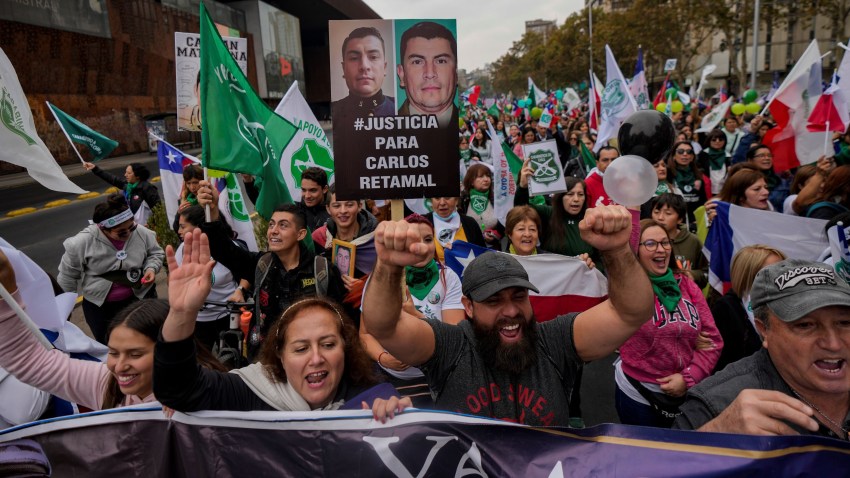Today at WPR, we’re covering Israel’s evacuation orders for northern Gaza and transnational repression in Southeast Asia.
But first, here’s our take on today’s top story.
Mexico: An armed group ambushed and killed 13 police officers in Guerrero, a state in southwestern Mexico that has become plagued by turf wars between drug cartels, leading to a surge in violence that has been particularly dangerous for security officials. (New York Times)
Our Take: Much of the violence by armed groups in Mexico is driven by local factors, namely turf wars and attempts to fill the vacuums created by any successes in campaigns targeting other criminal groups. But this ambush also fits into a broader trend domestically and regionally.
Get the Daily Review sent straight to your inbox every weekday.
President Andres Manuel Lopez Obrador, or AMLO, campaigned on the promise to demilitarize Mexico’s approach to fighting violent criminal organizations and drug-trafficking groups. But just a few months after taking office in December 2018, AMLO reversed course and embraced the country’s militarized approach to security. Since then, he has repeatedly doubled down on that strategy, despite its failure to reduce violence.
AMLO is not alone in this regard. Across Latin America, a number of leaders have entered office planning to overhaul their respective county’s security strategy, before falling back on an existing militarized approach when faced with public pressure to address crime and violence. In Colombia, for instance, President Gustavo Petro is currently struggling to overhaul the country’s drug policy amid a boom in cocaine production.
The pressure has led some leaders to consider the “war on gangs” model of Salvadoran President Nayib Bukele, which has visibly improved the living conditions for many civilians previously terrorized by violent gangs but came with enormous costs for human rights in the country. Honduran President Xiomara Castro—who also promised to demilitarize her country’s security strategy—has started to mimic Bukele’s rhetoric and policies on violence, even though it’s unclear how effective the “war on gangs” model will prove outside El Salvador.
Put simply, Latin American leaders face a conundrum: It’s clear that the militarized war on drugs has failed, but the less securitized alternatives take time—and significant social spending that often isn’t available—to show results.

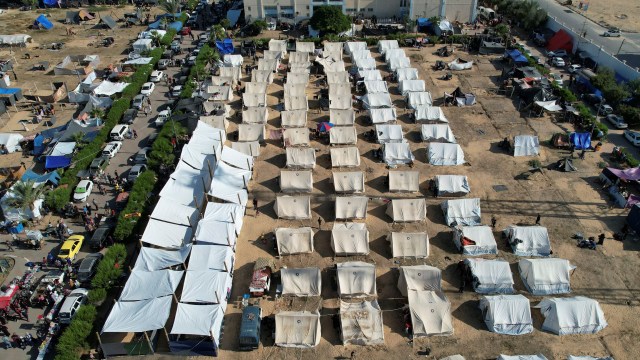
Israel Has a Better Option for Evacuating Civilians From Gaza
Ever since Israel ordered the evacuation of northern Gaza ahead of a widely anticipated ground offensive there, Palestinian civilians have been fleeing in panic to the south. But with both Israel and Egypt having closed their borders with Gaza, civilians remain trapped in the territory amid the escalating war. As a result, Israel’s evacuation order has generated severe criticism.
In legal terms, the problem was not the evacuation order itself, but rather the way in which Israel expected it to be carried out. However, as columnist Charli Carpenter writes, there is an actionable, legal alternative at Israel’s disposal for moving Palestinian civilians out of harm’s way in Gaza. If executed, it could resolve Israel’s humanitarian dilemma and even yield some helpful strategic side-benefits.
Southeast Asia Has Become a Hotbed of Transnational Repression
In recent years, many countries have become much bolder about kidnapping or simply killing political dissidents, terrorism suspects and anti-government activists inside the borders of other countries.
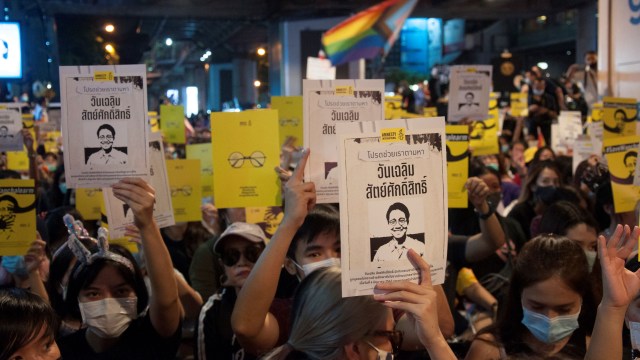
Though it is often overlooked in this regard, Southeast Asia was actually in many ways ahead of this trend. In fact, the region—which comprises almost exclusively authoritarian governments—has become a hotbed of extraterritorial renditions, disappearances and killings, Joshua Kurlantzick writes.

Question of the Day: Rwanda has negotiated a deal with which country to deploy troops there to prevent the spillover of jihadist violence from Niger and Burkina Faso?
Find the answer in the latest WPR Weekly Quiz, then read Samuel Ratner and Alex Thurston’s briefing on the limits of the “Rwandan model” for addressing the security crisis in the Sahel.

Chinese officials announced that Gen. Li Shangfu has been dismissed as the country’s defense minister, ending speculation about his status after he was not seen in public for nearly two months. U.S. officials had earlier said Li was being investigated for corruption, a claim that has not been verified by China.
As columnist Paul Poast wrote last month, Li’s case is one of several expressions of civil-military crises facing the world’s major powers right now, a trend that can be seen as a product of countries dealing with their new positions in a shifting global order.
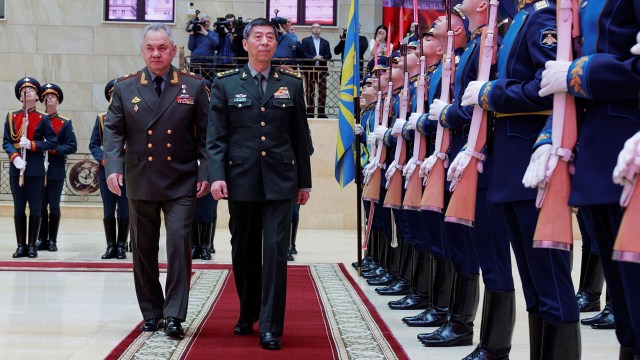
The Crisis in Civil-Military Relations Is Going Global
Sept. 29, 2023 | The world’s major powers, including the US, Russia and China, all seem to be facing civil-military crises. What’s going on? Read more.
Protesters blocked streets across Panama yesterday, demanding the government rescind a contract extension for the Cobre Panama copper mine, which accounts for roughly 5 percent of the country’s GDP but has been the subject of a number of legal challenges and environmental concerns.
The mine threatens to exacerbate Panama’s drought-fueled water crisis, which has led to a shortage in drinking water and created severe challenges for the Panama Canal. As Cristina Guevara wrote last month, the water crisis and mine controversy are part of a larger narrative about the delicate balance between economic development and environmental sustainability.
Panama’s Drought Has Global Implications
Sept. 22, 2023 | A drought in Panama has reduced transits at the Panama Canal, with implications for all of international trade. Read more.
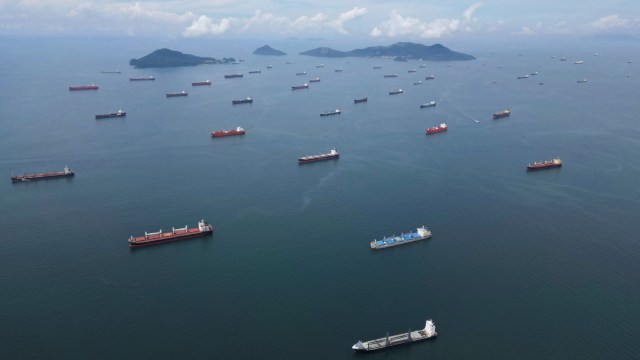
More From WPR
- Anas Iqtait and Tristan Dunning on the Palestinian Authority.
- James Bosworth on the Venezuela election deal.
- Judah Grunstein on the Israel-Hamas war.
- Paul Poast on far-right Republican’s opposition to Ukraine aid.

